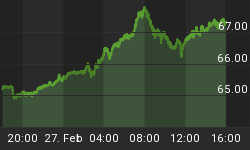Gold appears to be headed for an impressive price appreciation for the second half of 2012. Since the beginning of July, gold is up almost 10 over the same time frame. What is noteworthy here is that in recent months, fears of a worldwide recession have increased markedly. It used to be considered axiomatic that recession created adverse conditions for commodities (a reality that has helped push down the price of crude oil thus far in 2012). How then can we understand the movement in gold?
Reports have recently been released that throw particular light on the degree to which central banks around the world are accumulating gold. These activities must be playing a significant role in keeping the heat turned up when it may be otherwise cooling down. Given the extraordinary degree of insight that central bankers are expected to have, what do they see that drives them to buy gold when classically the metal should be falling in times of recession?
As we have said many times, there are two fundamental investment reasons to buy gold. The first is as a hedge against the loss of purchasing power of fiat currency, caused either by inflation or currency debasement. The second is as insurance against political and financial uncertainty or collapse. Central bankers are not giving either scenario much lip service.
By the latest analysis, it appears that the European Union (EU) is headed toward depression. After twelve years of stagnation, the Japanese economy remains flat at best. With an Obama victory at the polls, Obamacare, and massive tax increases threatened, the U.S. economy looks set increasingly for recession. If recession hits the world's two largest economies, the EU and U.S., the international economy, including that of China and its prime raw material suppliers such as Australia, Brazil and Canada, can't be expected to grow robustly. Runaway inflation, according to the models to which most central bankers subscribe, would then be considered a distant risk. Is it possible that these individuals, at the apex of the economic and financial worlds, don't trust their own policy papers?
Perhaps they understand the net effect of massive quantitative easing and the distortions being made by the ultra-low interest rates that have been held far too low for far too long. The unconventional monetary policies unleashed on the world since the beginning of the Great Recession have upended the financial rule book. But don't expect central bankers to openly acknowledge this change. Instead, they will talk loudly about the threats of deflation while quietly expanding gold reserves.
At present, these loose monetary policies are actively debasing currencies like the U.S. dollar and euro. In order to protect their exports into those economies, other hard-currency countries have engaged in competitive currency devaluation. Examples would include Switzerland, Japan and China.
Even in the absence of high inflation, currency debasement has contributed to a higher gold price. This, in turn has encouraged some central banks to increase the proportion of the gold content and decrease the amount of fiat currency in their reserves. This is somewhat surprising given that many countries had agreed to sell gold under the Central Bank Gold Agreements (CBGA's) I and II.
Russia, Ukraine, India, Turkey and the Kyrgz Republic have all increased their gold holdings recently. Turkey has even gone so far as to demand an increase in the proportion of gold held by its commercial banks as part of their reserves. Perhaps most important of all, James Rickards, a CIA and Pentagon senior advisor, released data recently showing that, in 2009, China secretly possessed gold holdings of 1,054 tonnes, or some 450 tonnes more than previously disclosed. This places China as the seventh largest holder of gold, or some 14 tonnes ahead of Switzerland. Perhaps this explains the recent news that gold is now the #1 Australian export to China, passing coal this year.
China's gold holdings amount to a relatively small 1.8 percent of her foreign currency reserves. This is far behind the largest holders. The U.S. has 8,133.5 tonnes, or 78.3 percent of its reserves; Germany has 3,412.6 tonnes, or 69.3 percent, the IMF 3,217 tonnes; and even Italy, in fourth place, has 2,451.8 tonnes or 66.5 percent.
Clearly, China has a long way to go before challenging the United States' vast holdings. However, China appears to be set upon a course of serious gold accumulation. Now the world's largest gold producer, China retains all its domestic production and buys additional tonnage on the international market.
The crucial message that many central banks are buying gold has not been lost on the private sector. The Exchange Traded Fund (ETF) SPDR has some 1,120.6 tonnes, making it the world's sixth largest holder and excludes other privately held accumulations.
Central banks are at the epicenter of the apparently coordinated unconventional monetary policies of quantitative easing and distorted low interest rates. The fact that many of them are buying gold surely carries a generally bullish message for the yellow metal, despite the increasing signs of worldwide recession or even of depression.
Subscribe to Euro Pacific's Weekly Digest: Receive all commentaries by Peter Schiff, John Browne, and other Euro Pacific commentators delivered to your inbox every Monday!
Order a copy of Peter Schiff's new book, The Real Crash: America's Coming Bankruptcy - How to Save Yourself and Your Country, and save yourself 35% off!















